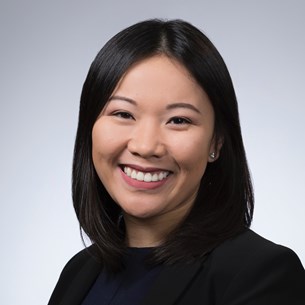Meeting
2024 ASCO Quality Care Symposium

University of Oklahoma Health Sciences Center, Oklahoma City, OK
Anh B. Lam , Ryan David Nipp , Jill S. Hasler , Bonnie Y. Hu , Gregory J. Zahner , Sarina Robbins , Stephanie B. Wheeler , Erin K. Tagai , Suzanne M. Miller , Jeffrey M. Peppercorn
Background: Individuals with cancer may seek assistance from co-pay assistance programs (CAPs) to help with high medication costs. However, little is known about these individuals’ perspectives on medication costs and their associations with other patient-reported outcomes (PROs). Methods: From 10-11/2022, we conducted a national, cross-sectional survey of CAP recipients with cancer, which asked about patient perspectives on medication costs (knowing monthly spending on medications, belief that health insurance would prevent high medication costs, and inability to afford care even with help paying for medications). We fit logistic regression models to describe associations between patient characteristics, including patient demographics and PROs (depression/anxiety symptoms [PHQ-4], financial toxicity [COST tool, score <14 indicates high financial toxicity], and health literacy [Brief Health Literacy Screener]), with patient perspectives. Results: Among 1,108 survey participants (median age=72 [range 41-92], 60% male sex), the most common cancer types were multiple myeloma (54%) and prostate cancer (13%). The majority of participants reported knowing their monthly spending on medications (75%); most believed their health insurance would prevent them from high medication costs (67%); under half reported an inability to afford care even with help paying for medications (41%). Factors associated with lower odds of knowing monthly medication spending included Black race (OR=0.45, P=.005), having Medicare Advantage (OR=0.73, P=.036), lack of supplemental insurance (OR=0.68, P=.011), more comorbidities (OR=0.52, P=.002), depression symptoms (OR=0.61, P=.013), and lower health literacy (OR=0.43, P<.001). Factors associated with believing that health insurance would prevent high medication costs were depression symptoms (OR=1.54, P=.02), anxiety symptoms (OR=1.40, P=.045), and financial toxicity (OR=2.24, P<.001). Factors associated with reporting an inability to afford care even with help paying for medications included Hispanic ethnicity (OR=2.55, P=.024), more comorbidities (OR=1.84, P=.003), depression symptoms (OR=3.16, P<.001), anxiety symptoms (OR=3.60, P<.001), and financial toxicity (OR=7.83, P<.001). Conclusions: In this large sample of CAP recipients with cancer, most reported knowing their monthly medication spending, believing health insurance would prevent high medication costs, and feeling able to afford care with help paying for medications. We identified patient characteristics associated with these perspectives and found correlations between depression/anxiety symptoms, financial toxicity, and low health literacy with greater concerns with medication costs. Effort to mitigate financial toxicity by reducing adverse effects of medication costs in oncology should consider patients’ perspectives and their impact on PROs.
Disclaimer
This material on this page is ©2024 American Society of Clinical Oncology, all rights reserved. Licensing available upon request. For more information, please contact licensing@asco.org
2024 ASCO Quality Care Symposium
Poster Session
Poster Session A
Quality, Safety, and Implementation Science,Cost, Value, and Policy,Patient Experience,Palliative and Supportive Care
Integrating Patient Experience Assessment and Patient Reported Outcomes Into Practice
JCO Oncol Pract 20, 2024 (suppl 10; abstr 246)
10.1200/OP.2024.20.10_suppl.246
246
D16
Abstract Disclosures
2024 ASCO Genitourinary Cancers Symposium
First Author: David Joseph Benjamin
2024 ASCO Quality Care Symposium
First Author: Anh B. Lam
2023 ASCO Genitourinary Cancers Symposium
First Author: Eric B Schwartz
2023 ASCO Quality Care Symposium
First Author: Pooja Karukonda